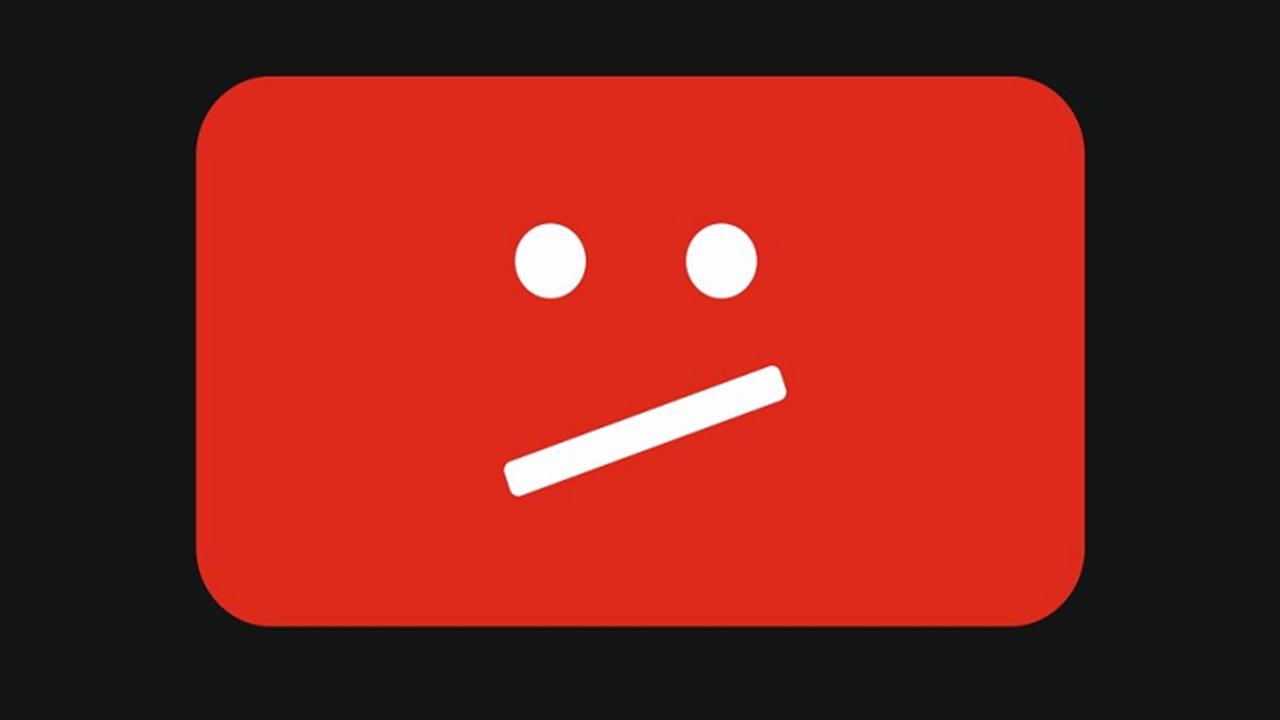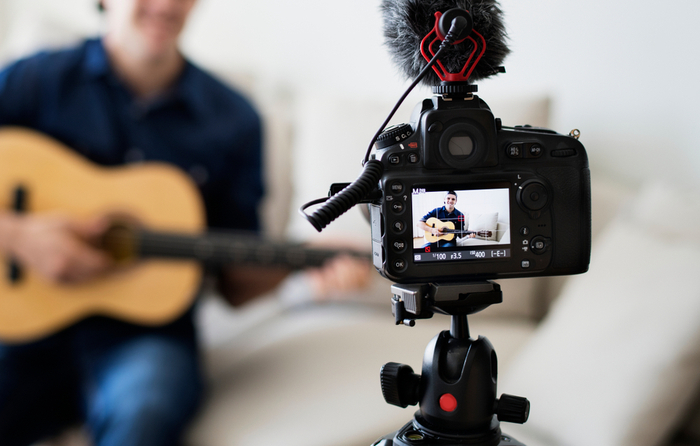News
How the YouTube content algorithm hurts creators

- September 28, 2018
- Updated: July 2, 2025 at 5:58 AM


In the past, becoming a famous entertainer was a pipe dream. You’d need to get lucky and get discovered by an agent at a mall, endure hundreds of auditions, and know the right people. After all that, if you were astronomically lucky, you’d get on TV.
While all of that largely remains true, the rise of Web 2.0 and user-based content platforms like YouTube and Instagram has made it exponentially easier to become a famous entertainer. Nowadays nearly everyone has a high definition camera, editing studio, and branding platform sitting nicely in their pocket. The barrier to entry is lower than its ever been, allowing anybody with a camera or platform to become a YouTube star.

How to film yourself for a YouTube gaming channel
Read Now ►For popular content creators, making YouTube videos is a full-time job. In terms of finances, it could be more than worth quitting your job. Top YouTubers make anywhere from thousands to millions of dollars per year off of advertising revenue, sponsorships, and donations. The highest paid YouTuber of 2017, DanTDM, made over $16.5 million. Being paid enormous amounts of money to be famous and create funny videos may sound amazing, but these creators’ careers are constantly in flux due to the way YouTube uses algorithmic software to recommend and promote certain videos.
So, what is this all-powerful YouTube algorithm?
The YouTube algorithm is the program that YouTube uses to automatically determine what kind of videos you like and which videos to recommend to you. The algorithm gathers data on user viewing habits and changes itself to match current internet trends. The program has grown so large and gathered so much data that even its creators at YouTube don’t completely understand how it works nowadays.
When you create your YouTube account, the first thing the algorithm does is try to figure out who you are and what you’re into. If the algorithm determines that you’re a college-aged male who likes watching people play video games, it’s going to start recommending you videos about gaming. Now that it knows this about you, it’s going to recommend you videos that are popular with other college-aged male gamers, creating a feedback loop in which people who fit in the same categories all see the same thing.

How to capture video game footage
Read now ►This phenomenon causes certain select channels who please the algorithm to shoot up in popularity, often over a very short period of time. This system is generally not a bad thing for viewers, as it shows you videos that are relevant to your interests and promotes the most proven and successful content. However, for content creators, the algorithm is a suffocating and merciless beast that forces them to constantly churn out videos or be banished into irrelevance.
Creators vs The Algorithm

To get noticed by the algorithm, content creators need just one smash hit video to get the ball rolling. This is difficult, as the number of views required for a video to be considered viral gets higher every day. However, if their video ends up becoming a hit, the algorithm will soon start recommending the creator’s other videos. When this happens, the creator’s views and subscriber count explodes overnight.
Once the creator is in this position, in order to maintain their popularity they’re expected by both their audience and the algorithm to produce content very frequently that is at the same level of quality as their original hit video.
Creators must adhere themselves to strict schedules and post high-quality videos on a daily or weekly basis if they are to maintain favor with the algorithm. If the creator either misses their schedule or produces videos that don’t click with audiences, they will be cast out by the algorithm and their videos will no longer be recommended by it to users. Because YouTube is saturated with content on nearly every conceivable hobby or subject, the algorithm will have no problem finding a similar creator to replace you.
Algorithmic burnout
The algorithm’s brutal emphasis on consistency and frequency often leads creators to experience burnout. Recently, waves of YouTubers have created videos of themselves describing their feelings of burnout and depression caused by the merciless algorithm. Prominent gaming YouTuber Jacksepticeye recently sat down with fellow YouTuber h3h3 to describe the feeling of burnout caused by YouTube and its algorithm. (The interview below contains some harsh language)
The rigorous schedule expected of the algorithm affects every dedicated YouTuber, whether they have hundreds of subscribers or millions. The automated system of video curation makes YouTubers feel disposable, constantly living in fear that they’re one missed or weak video away from fading into irrelevancy. Promoting quantity and consistency over all else has caused many YouTubers to experience mental health issues. The suffering of these creators is often reflected in their work, and fans will notice that their videos are lower in quality or harsher in tone than they used to be. This is all to say nothing of the inevitable torrents of toxicity and anonymous abuse by trolls that comes with being any sort of prominent figure on the internet.

How to edit and share video game footage on Youtube
Read now ►What can be done?
YouTube has an absolutely enormous amount of content. Every second, one hour’s worth of video is uploaded onto the platform. It would be nothing short of impossible for human employees to sort through videos without the help of an algorithm. So what can YouTube do to help maintain the mental health of its biggest stars? It can start by making changes to the algorithm, de-emphasizing the quantity and frequency of content. It could still take those into consideration, but it could widen the window of time creators have to upload videos before being shut out. Instead of emphasizing daily content, the algorithm can focus more on weekly or monthly content, giving creators more breathing room.
YouTube can also continue creating resources that help creators deal with stress and burnout. They’ve created a video through their Creators Academy series that teaches creators how to handle burnout. The creation of these videos is a good sign, as it shows YouTube is aware of the mental health issues created by their algorithm, and that steps are being taken to help fight this phenomenon.
When YouTubers are suffering, everyone involved with the platform loses. Creators suffer and make low-quality content, audiences lose out on videos they love, and YouTube gains bad press and loses revenue. If YouTube wants to maintain their dedicated base of creators, they must make drastic changes to their algorithm in order to preserve their mental health.
Justin Cabrera is a tech content writer with Softonic.com. Prior to joining Softonic, Justin was a overcaffeinated radio DJ and know-it-all music critic with WPGU 107.1. His two favorite things in the world are video games and music culture.
Latest from Justin Cabrera
You may also like
 News
NewsThe most interesting indie of the year puts us in the shoes of a crystal demon who skateboards
Read more
 News
NewsAccording to the author of Percy Jackson, the series is more faithful to his books than the movies
Read more
 News
NewsMike Tyson took almost 30 years to discover that an iconic video game character was inspired by him
Read more
 News
NewsWarner Bros. is strongly opposed to Paramount's hostile takeover bid
Read more
 News
NewsCon 26 años a sus espaldas, esta franquicia de juegos de estrategia y RPG anuncia la fecha de lanzamiento de su nueva entrega
Read more
 News
NewsWhat is Fantastic Frontiers? The new trend that Adobe Firefly helps you create effortlessly
Read more